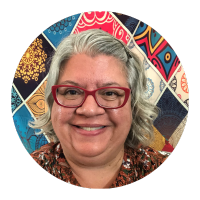What Do We Know About the Need for CE to Advance Care for the LGBTQ+ Community?
Around 7% of people in the U.S. identify as LGBTQ+1, with over 1 million same-sex couples2 and 1.6 million transgender people.3 A 2021 survey indicated that Gen Z — people born between 1997 and 2004 — are mostly likely to identify as LGBTQ+, and that number is growing.4 However, studies show that this community faces alarming disparities in healthcare, with 16% reporting discrimination in their doctor's office and nearly 20% avoiding medical care due to fear of discrimination5. Furthermore, nearly 1 in 4 transgender people reported having to educate their own doctor about their health issues.6
In cancer care, the National LGBT Cancer Network OUT study7 highlighted disparities, including difficulty finding welcoming care for gender nonconforming patients, limited patient engagement due to providers' lack of awareness of gender identity and sexual orientation, disrespectful communication during cancer diagnoses for gender expansive patients, and difficulty finding education tailored to the specific needs of the LGBTQ+ community, with over 50% of patients unable to find helpful information about being an LGBTQ+ person with cancer.
The Human Rights Campaign shared stories of discrimination faced by LGBTQ+ patients in healthcare, including a transgender woman being told she could not use the office restroom but instead to go to a McDonald's down the street, a gay man receiving less friendly treatment after mentioning his husband, and a lesbian mother being questioned and dismissed as "the other mom." These experiences highlight the urgent need for continuing education (CE) for healthcare providers to ensure welcoming and respectful care for LGBTQ+ patients.8
Effective Approaches in Continuing Education
Various effective approaches exist in CE to advance equitable care for LGBTQ+ populations. This section provides an overview of two distinct programs from Optum Health Education (OHE) and PRIME that were particularly successful.
OHE collaborated with a Care Delivery Organization (CDO) to develop two live webcasts, repeated twice and available for three years, to educate healthcare providers on caring for the LGBTQ+ community. The first webcast, Caring for the LGBTQ+ Community: An Introduction, provided an overview of appropriate terminology, social and health disparities, and creating welcoming environments. The second, Across the Sexual Orientation and Gender Identity Spectrum: A Call to Action, focused on patient-provider interactions, inclusive physical exams, and accurate health documentation. The CDO posted both webcasts without credit to mandate completion by their healthcare teams and improve the care provided to LGBTQ+ patients.
PRIME’s quality improvement initiative successfully addressed underlying root causes of disparities in care for LGBTQ+ cancer patients through a research-driven approach. The project was executed in academic settings (Moffitt Cancer Center and Dana Farber), then extended to the community (American Oncology Network and Florida Cancer Specialists). System-, team- and individual-level factors that affect quality care provisions were assessed through baseline surveys of oncology providers (n=115) and LGBTQ+ cancer patients (n=817). The data revealed lower inclusivity measures reported by community providers and a need for more training on how LGBTQ+ identity influences treatment considerations in both settings. Discordances were also identified between patients and providers. Nearly 40% of patients reported increased confidence in care if their provider shares their pronouns or displays them on their badge, but 0% of HCPs reported doing so.
The baseline data from the PRIME initiative was used in audit-feedback sessions at participating clinics to guide providers in assessing their own practice gaps, prioritizing areas for improvement, and developing action plans for advancing equitable care. This included the integration of a LGBTQ+ Cancer Care Toolkit into clinic workflows. Follow-up assessments were then conducted to measure the sustainable impact of practice-changing improvements at each clinic. The project's methods and research findings were used to create an accredited video and will be published in a peer-reviewed journal manuscript as well as presented at a major conference to support oncology providers nationwide in advancing equitable care for LGBTQ+ patients.
Outcomes Measures That Matter Most
As of December 2023, nearly 8,000 healthcare providers have enrolled in Optum Health Education activities, with 78% reporting a strong commitment to implementing changes in their practice based on what they learned. Feedback highlighted the importance of inclusive teams, personal stories and practical suggestions for supporting the LGBTQ+ community. Participants expressed gratitude for increased awareness and perspective, and a desire to be even stronger allies.
PRIME's quality improvement initiative led to significant practice changes at participating clinics. Follow-up assessments showed that around 50% of providers integrated resources tailored to the unique needs of LGBTQ+ cancer patients into clinical workflows. Providers also improved documentation of patients' preferred pronouns in EMRs and purchased accessories to demonstrate inclusion. Commitment to discussing gender identity and sexual orientation increased from 12% to 78% among academic providers and from 1% to 68% among community providers. These discussions were important to increasing patient confidence in their cancer care as highlighted in the baseline data, thereby demonstrating the impact of utilizing real-world patient insights to motivate provider behavior change. In recognition of the project’s impact on advancing health equity in LGBTQ+ cancer care, PRIME will receive the 2024 William Campbell Felch Award for outstanding research in continuing education.
Keeping a Spotlight on These Efforts
With the increasing number of people identifying as LGBTQ+, it is crucial for healthcare providers to understand their unique healthcare needs and the disparities that may affect them. The goal is to create a safe, welcoming and inclusive environment where all patients feel heard and validated. CE programs that include practical resources to support the healthcare team in delivering equitable care as well as research-informed initiatives that identify and address root causes of disparities in care can be instrumental in keeping a spotlight on the ongoing effort to advance care for the LGBTQ+ community.
 Rachel Every, RN, BSN, joined Bristol Myers Squibb in 2018 with over a decade of global medical education and investigator sponsored experience from Jazz Pharmaceutical and Centocor. In her recent role, she serves as associate director in global medical education where she manages the oncology GI and GU book of work. Rachel has a passion for mental health to reduce the stigma in both the community and workplace and co-leads the Mental Health Ally program at BMS. She is also a certified mental health advocate. In her spare time, Rachel enjoys walking in the countryside by her home in Ringoes, New Jersey, where she has three dogs and a barn cat.
Rachel Every, RN, BSN, joined Bristol Myers Squibb in 2018 with over a decade of global medical education and investigator sponsored experience from Jazz Pharmaceutical and Centocor. In her recent role, she serves as associate director in global medical education where she manages the oncology GI and GU book of work. Rachel has a passion for mental health to reduce the stigma in both the community and workplace and co-leads the Mental Health Ally program at BMS. She is also a certified mental health advocate. In her spare time, Rachel enjoys walking in the countryside by her home in Ringoes, New Jersey, where she has three dogs and a barn cat.
 Chris Napolitan is the managing director of PRIME Education, having joined the organization in 2018. In his role, Chris oversees the day-to-day operations of the company, including education strategy, research and population health initiatives, program implementation, and corporate development. Prior to joining PRIME, Chris spearheaded strategy for the healthcare professional division of the Everyday Health Group. During his tenure, Chris was honored with The Software and Information Industry Association’s Emerging Leader Award. Chris’ experience brings a unique and innovative approach to solving complex problems in healthcare. The relationships he has established and continues to build have helped to ensure alignment in improving the quality of patient care. Chris is a graduate of Babson College and resides with his wife in Brooklyn, New York.
Chris Napolitan is the managing director of PRIME Education, having joined the organization in 2018. In his role, Chris oversees the day-to-day operations of the company, including education strategy, research and population health initiatives, program implementation, and corporate development. Prior to joining PRIME, Chris spearheaded strategy for the healthcare professional division of the Everyday Health Group. During his tenure, Chris was honored with The Software and Information Industry Association’s Emerging Leader Award. Chris’ experience brings a unique and innovative approach to solving complex problems in healthcare. The relationships he has established and continues to build have helped to ensure alignment in improving the quality of patient care. Chris is a graduate of Babson College and resides with his wife in Brooklyn, New York.
 Tricia Wilson, MS, CHCP, has over 25 years’ experience as a program manager in continuing medical education. She has worked closely with key opinion leaders and to conduct comprehensive needs assessments, develop educational activities, and evaluate educational outcomes assessment strategies and has expertise in producing programs that are in compliance with multiple accreditation requirements. She has participated in multiple reaccreditation cycles while employed by a variety of accredited providers and is well versed in the process, expectations and outcomes. She has been honored to speak at CMEPalooza, Alliance and MAACME annual conferences. In addition, she serves as secretary of the NAMEC Board of Directors and an Alliance Annual Conference Abstract Reviewer. She is also a member of the Alliance Nominating Committee and co-chairs the MAACME Conference Planning Committee. Tricia earned her master’s degree in health administration and health education from Saint Joseph’s University and her bachelor’s degree in public relations from Temple University, both in Philadelphia.
Tricia Wilson, MS, CHCP, has over 25 years’ experience as a program manager in continuing medical education. She has worked closely with key opinion leaders and to conduct comprehensive needs assessments, develop educational activities, and evaluate educational outcomes assessment strategies and has expertise in producing programs that are in compliance with multiple accreditation requirements. She has participated in multiple reaccreditation cycles while employed by a variety of accredited providers and is well versed in the process, expectations and outcomes. She has been honored to speak at CMEPalooza, Alliance and MAACME annual conferences. In addition, she serves as secretary of the NAMEC Board of Directors and an Alliance Annual Conference Abstract Reviewer. She is also a member of the Alliance Nominating Committee and co-chairs the MAACME Conference Planning Committee. Tricia earned her master’s degree in health administration and health education from Saint Joseph’s University and her bachelor’s degree in public relations from Temple University, both in Philadelphia.
References
- Jones, J. (2022, February 17). LGBT identification in U.S. ticks up to 7.1%. Gallup. https://news.gallup.com/poll/389792/lgbt-identification-ticks-up.aspx
- Bureau, U. C. (2022, November 22). Key Demographic and Economic Characteristics of Same-Sex and Opposite-Sex Couples Differed. Census.gov. https://www.census.gov/library/stories/2022/11/same-sex-couple-households-exceeded-one-million.html
- Allen, J. (2022, June 10). New study estimates 1.6 million in U.S. identify as transgender. Reuters. https://www.reuters.com/world/us/new-study-estimates-16-million-us-identify-transgender-2022-06-10/
- Chinni, D. (2022, July 3). 1 in 5 adult members of Gen Z self-identify as LGBTQ. NBC News. https://www.nbcnews.com/meet-the-press/news/one-five-adult-members-gen-z-self-identifies-lgbtq-rcna36147
- Casey, L. S., Reisner, S. L., Findling, M. G., Blendon, R. J., Benson, J. M., Sayde, J. M., & Miller, C. (2019). Discrimination in the United States: Experiences of lesbian, gay, bisexual, transgender, and queer Americans. Health Services Research, 54(S2), 1454–1466. https://doi.org/10.1111/1475-6773.13229
- Miller, G. H., Márquez-Velarde, G., Mills, A. R., Hernandez, S. M., Brown, L., Mustafa, M., & Shircliff, J. E. (2023). Patients’ Perceived Level of Clinician Knowledge of Transgender Health Care, Self-rated Health, and Psychological Distress Among Transgender Adults. JAMA Network Open, 6(5), e2315083–e2315083. https://doi.org/10.1001/jamanetworkopen.2023.15083
- OUT: The National Cancer Survey June 2021. https://cancer-network.org/wp-content/uploads/2021/06/OUT-LGBTCancerNetwork-SurveyReport_Final.pdf
- HEI 2022. (n.d.). HRC Digital Reports. Retrieved November 29, 2023, from https://reports.hrc.org/hei-2022?_ga=2.120864136.1875365016.1696339403-1215889417.1696339403#